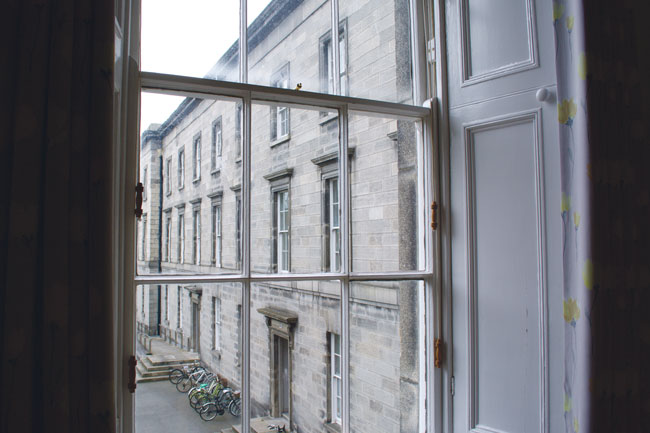The practice of forcing student renters to pay all of their rent upfront is expected to end from September as part of a new Government bill which seeks to strengthen protections for all renters.
Under the new bill, which was announced by Minister for Higher Education Simon Harris and Minister for Housing Darragh O’Brien today, any upfront payment upon the start of a tenancy will be restricted to the value of no more than two months’ rent.
The Residential Tenancies Bill (No. 2) 2021 extends to all tenancies, including students living in purpose-built student accommodation.
The bill also provides that students in student-specific accommodation can exit their contract with 28 days’ notice.
Currently, student renters often have to pay rent upfront, or in two instalments during the year. An opt-out option is included in the bill for renters who still wish to make a large upfront payment.
Additionally, students who cannot take up prebooked accommodation due to coronavirus restrictions would be able to exit their contract with 28 days’ notice, receiving a refund of any rent paid beyond that.
In a press statement today, Harris said: “I want to welcome the measures contained in this Bill. The cost of accommodation can be a significant burden for students and their families.”
“Over 40,000 students live in purpose build [sic] student accommodation”, Harris said. “This measure will help lower the financial barriers by removing a significant upfront expense for students attending college. It will be applicable for the new academic year.”
“This is one of a series of initiatives we intend to take in this area but today is an important step.”
The Union of Students in Ireland (USI) welcomed the announcement, with its President Lorna Fitzpatrick saying in a press statement: “Up to now, students have been expected to pay three, six and nine months in advance for student accommodation. Many students have to work while in college to pay their rent and just don’t have access to this kind of money up front, meaning they miss out on securing student accommodation.”
“These two decisions will help level the playing field a bit”, she added, “but there is a lot more to do”.
“Student accommodation is still much too expensive and is a huge burden on many students. It also needs to be ensured that being able to pay up front does not give one student a preference over another. Accommodation should be allocated in a fair way – be that on need, or on a first-come basis – and not based on how many months rent you can hand over up front.”
This bill follows the introduction of the USI’s Residential Tenancies (Student Rents and Other Protections) (Covid-19) Act 2021, which was signed by all TDs in Sinn Féin, Labour, the Social Democrats, Solidarity-People Before Profit and the Independent Group.
The private members’ bill, tabled in February, would prevent student accommodation providers from forcing students to pay more than one month’s rent in advance.
O’Brien said in a press statement: “Today Cabinet have approved the introduction of a number of rental protections which will benefit students. These measures are just the beginning of a suite of rental protections which I hope to bring forward in the autumn to protect all tenants.”
“Having met previously with members of the USI, I know they were particularly concerned about students being asked to pay up to a year’s rent in advance and having to provide lengthy termination notices. The measures Cabinet have approved today will go some way towards alleviating the concerns raised.”
“We do need to increase the availability of accommodation for students – this is the most effective way to provide real choice and options. I will continue to liaise with Minister Harris and the USI on this matter”, he added.







